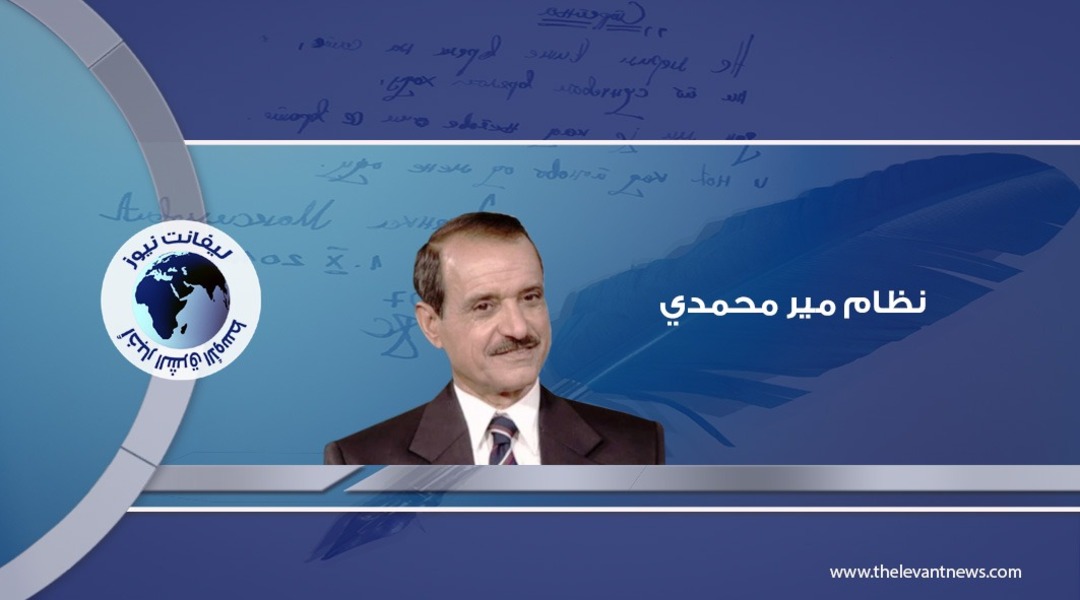-
Iran's Strategic Dilemma in the Middle East: Options and Consequences?

By Mir Mohammad
The Middle East is experiencing escalating tensions, with the Iranian regime finding itself mired in a quagmire of regional conflicts of its own making. For years, Supreme Leader Ali Khamenei has claimed that involvement in conflicts across the region—in countries such as Syria, Lebanon, Palestine, Yemen, and Iraq—was aimed at preventing war from reaching Iran. He has repeatedly stated that Iran fights abroad "so that war does not reach Iran." This position was echoed by Hossein Shariatmadari, the editor-in-chief of Kayhan, the newspaper that speaks for Khamenei, who stated, "We pay the price for our security." Former parliamentary speaker Ali Larijani also reinforced this view, saying, "This is related to our national security and interests." However, the reality on the ground has changed, and now the Iranian regime finds itself on the front lines of an expensive war, with only two options: either engage fully and bear the consequences or surrender and face the results of defeat.
**Iran's Dilemma: No Middle Ground**
The Iranian regime must now clearly define its role in the region. There is no possibility of returning to the past or adopting a middle solution. The regime's involvement in regional conflicts has reached a critical crossroads, making it increasingly clear that there is no escape from the consequences of Khamenei's expansionist policies. Foreign Minister Abbas Araqchi has made several visits to Saudi Arabia, Qatar, Oman, Iraq, Lebanon, Syria, Jordan, Egypt, Turkey, Yemen, and Kuwait, claiming to discuss a ceasefire and peace agreements. However, these diplomatic efforts have yielded no results. The regime's vision for a ceasefire—which revolves around returning to the status quo prior to October 7, 2023—has been dismissed as unrealistic and unfeasible.
**Demands from the Other Side Are Clear**
They want the Iranian regime without its proxy forces, without its missile capabilities and nuclear ambitions. For the regime, accepting these terms would mean relinquishing its regional influence and would be seen as surrender, akin to drinking from the "poisoned chalice" that Khomeini referred to during the Iran-Iraq War. Khamenei also rejects these demands, knowing that acceptance would spell political disaster and put the regime’s strategic assets at risk both regionally and domestically.
**Regional Threats and Their Consequences**
Khamenei's regime has not hesitated to issue stern threats. One of the solutions suggested by his advisors to halt the war involves attacking regional countries if the conflict extends to Iran's borders. The idea of attacking southern Arab states, which Khamenei sees as allies of the West, has been proposed as a serious option. Ali Larijani specifically warned, "In due course, we will hold Arab countries accountable." Similarly, Ibrahim Razaei, spokesperson for the National Security and Foreign Policy Committee of the Iranian Parliament, stated, "Anyone involved in the Israeli dossier, whether planners, executors, or supporters, will be punished."
These threats are not trivial; the prospect of such operations would significantly impact the global oil market. For instance, approximately two million barrels of Saudi oil pass daily through the Strait of Hormuz to China. Any military action in the region would inevitably draw the United States, Western powers, and regional states like Saudi Arabia and the UAE, as well as China, into the conflict.
It has been reported recently that Arab countries have contacted Israel, affirming their support for any Israeli military response against Iran and requesting Israel to notify them in advance of any attacks so they can prepare for any possible retaliatory response from Iran. The consequences of Iran attacking its Arab neighbors would be catastrophic, not only for the region but also for the Iranian regime itself. As noted in the report, "The main loser in such a scenario would be the regime in Tehran." Can Iran survive such a conflict?
Currently, the Iranian regime finds itself in increasing isolation. Countries like Israel, the United States, and both Western and regional powers stand against Tehran, while major powers like China and Russia remain neutral at best, unwilling to support Iran in the event of war. Moreover, the network of proxy forces that Iran has relied on has weakened, complicating its strategic position. As noted by Al-Sharq Al-Awsat, "Iran’s external front has dramatically collapsed, leaving it defenseless after the destruction of Hamas and Hezbollah’s capabilities."
Internally, the regime faces significant challenges in garnering support for a new war. Most Iranians, with few loyalists, lack the motivation to fight in such a conflict. Even the official newspaper Jomhouri Eslami warned that today's calls for war are no different from "the calls of the people of Kufa to Imam Hussein, which ended with their betrayal of him at the start of battle." The newspaper Ham Mihan added, "War is poison, and why should we believe that people support war? Today, there is no large
You May Also Like
Popular Posts
Caricature
BENEFIT AGM approves 10%...
- March 27, 2025
BENEFIT, the Kingdom’s innovator and leading company in Fintech and electronic financial transactions service, held its Annual General Meeting (AGM) at the company’s headquarters in the Seef District.
During the meeting, shareholders approved all items listed on the agenda, including the ratification of the minutes of the previous AGM held on 26 March 2024. The session reviewed and approved the Board’s Annual Report on the company’s activities and financial performance for the fiscal year ended 31 December 2024, and the shareholders expressed their satisfaction with the company’s operational and financial results during the reporting period.
The meeting also reviewed the Independent External Auditor’s Report on the company’s consolidated financial statements for the year ended 31 December 2024. Subsequently, the shareholders approved the audited financial statements for the fiscal year. Based on the Board’s recommendation, the shareholders approved the distribution of a cash dividend equivalent to 10% of the paid-up share capital.
Furthermore, the shareholders endorsed the allocation of a total amount of BD 172,500 as remuneration to the members of the Board for the year ended 31 December 2024, subject to prior clearance by related authorities.
The extension of the current composition of the Board was approved, which includes ten members and one CBB observer, for a further six-month term, expiring in September 2025, pending no objection from the CBB.
The meeting reviewed and approved the Corporate Governance Report for 2024, which affirmed the company’s full compliance with the corporate governance directives issued by the CBB and other applicable regulatory frameworks. The AGM absolved the Board Members of liability for any of their actions during the year ending on 31st December 2024, in accordance with the Commercial Companies Law.
In alignment with regulatory requirements, the session approved the reappointment of Ernst & Young (EY) as the company’s External Auditors for the fiscal year 2025, covering both the parent company and its subsidiaries—Sinnad and Bahrain FinTech Bay. The Board was authorised to determine the external auditors’ professional fees, subject to approval from the CBB, and the meeting concluded with a discussion of any additional issues as per Article (207) of the Commercial Companies Law.
Speaking on the company’s performance, Mr. Mohamed Al Bastaki, Chairman BENEFIT , stated: “In terms of the financial results for 2024, I am pleased to say that the year gone by has also been proved to be a success in delivering tangible results. Growth rate for 2024 was 19 per cent. Revenue for the year was BD 17 M (US$ 45.3 Million) and net profit was 2 Million ($ 5.3 Million).
Mr. Al Bastaki also announced that the Board had formally adopted a new three-year strategic roadmap to commence in 2025. The strategy encompasses a phased international expansion, optimisation of internal operations, enhanced revenue diversification, long-term sustainability initiatives, and the advancement of innovation and digital transformation initiatives across all service lines.
“I extend my sincere appreciation to the CBB for its continued support of BENEFIT and its pivotal role in fostering a stable and progressive regulatory environment for the Kingdom’s banking and financial sector—an environment that has significantly reinforced Bahrain’s standing as a leading financial hub in the region,” said Mr. Al Bastaki. “I would also like to thank our partner banks and valued customers for their trust, and our shareholders for their ongoing encouragement. The achievements of 2024 set a strong precedent, and I am confident they will serve as a foundation for yet another successful and impactful year ahead.”
Chief Executive of BENEFIT; Mr. Abdulwahed AlJanahi commented, “The year 2024 represented another pivotal chapter in BENEFIT ’s evolution. We achieved substantial progress in advancing our digital strategy across multiple sectors, while reinforcing our long-term commitment to the development of Bahrain’s financial services and payments landscape. Throughout the year, we remained firmly aligned with our objective of delivering measurable value to our shareholders, strategic partners, and customers. At the same time, we continued to play an active role in enabling Bahrain’s digital economy by introducing innovative solutions and service enhancements that directly address market needs and future opportunities.”
Mr. AlJanahi affirmed that BENEFIT has successfully developed a robust and well-integrated payment network that connects individuals and businesses across Bahrain, accelerating the adoption of emerging technologies in the banking and financial services sector and reinforcing Bahrain’s position as a growing fintech hub, and added, “Our achievements of the past year reflect a long-term vision to establish a resilient electronic payment infrastructure that supports the Kingdom’s digital economy. Key developments in 2024 included the implementation of central authentication for open banking via BENEFIT Pay”
Mr. AlJanahi concluded by thanking the Board for its strategic direction, the company’s staff for their continued dedication, and the Central Bank of Bahrain, member banks, and shareholders for their valuable partnership and confidence in the company’s long-term vision.
opinion
Report
ads
Newsletter
Subscribe to our mailing list to get the new updates!




















